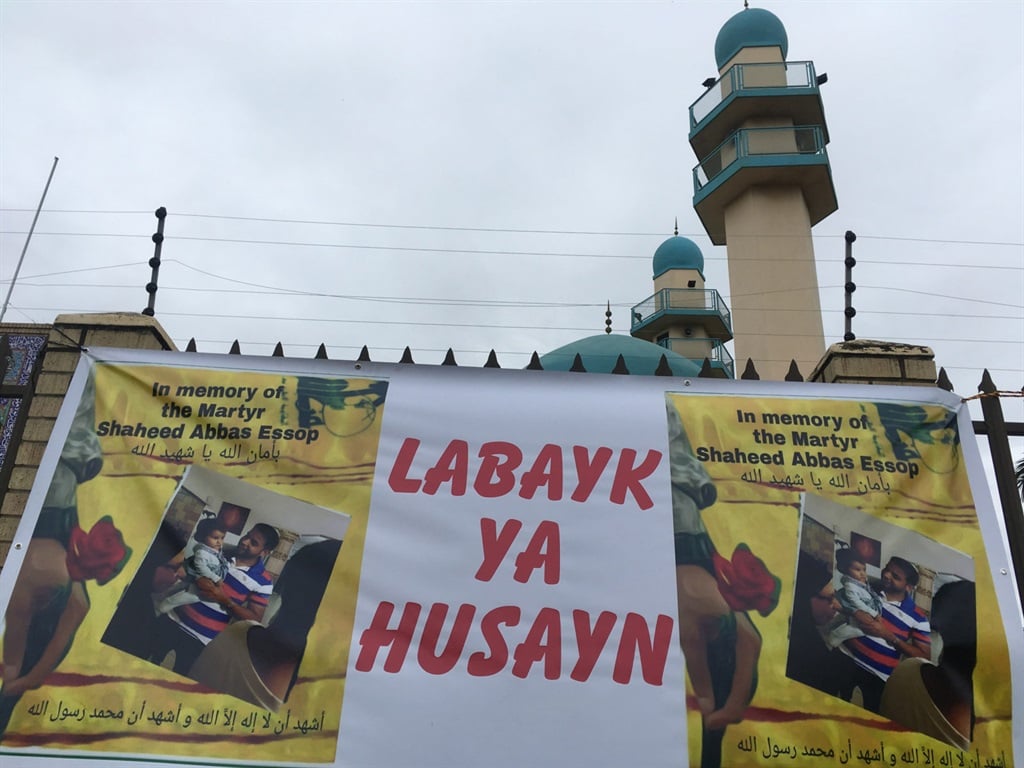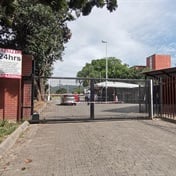
Although the deadly attack on a mosque in the Western Cape has similarities to a recent attack at a mosque in KwaZulu-Natal, the police have not established any links yet, although they have called the attack a matter of “national security”.
The Muslim community has been left reeling after this, the second attack in a few weeks, which came as Muslims are preparing to celebrate Eid al-Fitr, the festival of breaking the fast, on Friday.
Early on Thursday, two worshippers were killed and others wounded in the attack on the Sunni mosque in the small Western Cape town of Malmesbury. The attacker was shot dead by police.
The attack came a month after three men armed with guns and knives slit the throats of three worshippers at the Verulam mosque north of Durban, killing one person and seriously injuring two others.
The Muslim Judicial Council said worshippers were performing “l’tikaf” or seclusion in the mosque when the knifeman entered and joined congregants in morning prayers.
“Just after 3am, when the worshippers retreated to rest, the assailant attacked the imam first and then murdered the members who came to the imam’s defence,” it said in a statement.
Police said the attack near Durban showed “elements of extremism”.
They did not comment on the motive behind the killings in Malmesbury, a small farming town 65km north of Cape Town, but national police commissioner Lieutenant-General Khehla Sitole told News24 earlier today that investigators hadn’t established a connection between the two attacks.
“The [Malmesbury] case is not very different from the Verulam one. Although we haven’t established full connections between the two, but its nature again, is also bearing on national security,” Sitole said.
Malmesbury and the Western Cape province in which it is located is home to the largest community of Muslims in South Africa.
“The suspect, believed to be in his thirties and armed with a knife, was still on the scene and charged at the police who tried to persuade him to hand himself over,” police said in a statement. The suspect was shot as he attacked officers, police said.
South Africa has a large expatriate community and attracts many tourists but has seldom been associated with Islamist militancy.
News24 reported that there were intense divisions among Muslim clerics around the country, that apparently stemmed from an accord signed in Cape Town earlier this month, which was meant to foster peace.
At this stage, however, there is no established proof that the attack is related to the Cape Accord.
Earlier this month, the Cape Accord was signed in Cape Town by several Islamic leaders. An online invitation to sign the accord outlined what it was about.
“With the current climate of intra-faith hostility and increasing attacks on foremost figures within our faith community, it befits leading institutions and organisations in our societies to synergistically ally with one another to proactively engage each other in promoting understanding, tolerance, harmony and fraternal union,” it read.
However, the Cape Accord has not been welcomed by all, and differing opinions about it have caused divisions.
Last week, a voice note did the rounds of a man, believed to be a well-known Muslim cleric, saying: “Anybody who signs the Cape Accord is a Kafir [unbeliever].”
On Wednesday, the Muslim Judicial Council of South Africa issued a statement on its Facebook page headed: “A call for tolerance and unity in our dialogue.”
It said the month of Ramadan had been extremely difficult for Muslims in the country.
“It was plagued by much controversy, discord and disunity, from defamation and slander, to blatant disrespect and takfirism [excommunication] ... This discord had a direct impact on our reputation as a tolerant and dignified community, who pride ourselves on our Din [religion] in our beautiful land,” it said.
The Muslim Judicial Council said although it had not endorsed the Cape Accord, it rejected the declaration of Kufr (disbelieve) on its Úlama, individuals, and organisations associated with the accord. – Additional reporting by Reuters and News24




 Publications
Publications
 Partners
Partners








